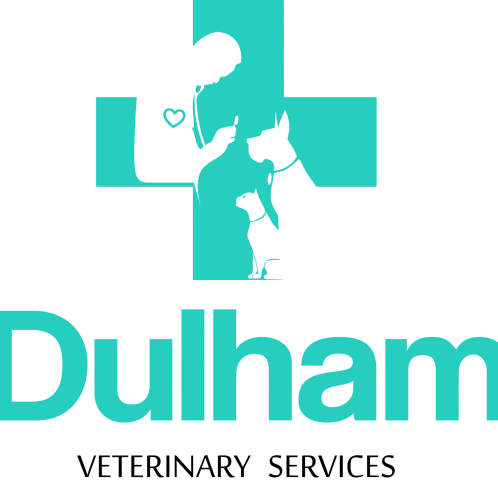Dogs, like humans, are vulnerable to a wide range of illnesses that can affect their health, happiness, and lifespan. As a responsible pet owner, understanding common dog diseases, their symptoms, and the medications used for treatment is essential. Early detection and the right veterinary care can make the difference between recovery and long-term suffering.
Understanding Canine Health Challenges
Why Dogs Are Prone to Illnesses
Dogs live in environments where they are exposed to parasites, infectious agents, and allergens. Factors like breed genetics, age, and diet also increase their risk of falling sick.
Importance of Early Detection and Veterinary Care
Most dog illnesses progress quickly, which means early diagnosis is critical. Routine vet checkups, vaccinations, and preventive care help ensure a longer and healthier life for your dog.
Infectious Diseases in Dogs
Parvovirus: Symptoms and Treatment Options
Parvovirus is a deadly viral infection that primarily affects puppies. Symptoms include vomiting, bloody diarrhea, and dehydration. Treatment includes IV fluids, antibiotics to prevent secondary infections, and antiviral support.
Distemper: Causes, Risks, and Medications
Canine distemper attacks the respiratory, digestive, and nervous systems. Signs include coughing, nasal discharge, seizures, and paralysis. Treatment is supportive, involving fluids, antibiotics, and anticonvulsants.
Kennel Cough: Effective Remedies and Recovery Tips
Kennel cough is a contagious respiratory illness often spread in boarding facilities. Common remedies include antibiotics, cough suppressants, and rest.
Rabies: Prevention and Mandatory Vaccinations
Rabies is fatal and has no cure. Vaccination is the only prevention, and it’s mandatory for all dogs.
Parasitic Infections in Dogs
Fleas and Ticks: Control and Preventive Medications
Fleas and ticks cause itching, anemia, and can transmit diseases like Lyme. Treatment includes topical medications (e.g., Frontline, Bravecto) and tick collars.
Heartworm Disease: Signs, Diagnosis, and Treatment
Heartworms live in the heart and lungs, causing coughing, fatigue, and weight loss. Treatment includes melarsomine injections and preventive medications such as ivermectin.
Intestinal Worms: Common Types and Deworming Options
Roundworms, hookworms, and tapeworms are common. Regular deworming with medications like fenbendazole or praziquantel is essential.
Skin and Allergy-Related Conditions
Dermatitis: Causes and Anti-Inflammatory Treatments
Skin inflammation can be caused by parasites, allergies, or infections. Treatment includes antihistamines, antibiotics, and medicated shampoos.
Food Allergies: Identifying Triggers and Medications
Food allergies cause itching, vomiting, and diarrhea. Vets recommend hypoallergenic diets and medications like corticosteroids for relief.
Hot Spots: Care and Topical Solutions
Hot spots are painful skin infections caused by excessive scratching. Treatments include topical antibiotics, anti-itch sprays, and oral medications.
Chronic and Age-Related Dog Illnesses
Arthritis in Senior Dogs: Pain Relief and Joint Care
Arthritis causes stiffness and pain in older dogs. Medications include NSAIDs (like carprofen) and joint supplements (glucosamine, chondroitin).
Diabetes in Dogs: Insulin Therapy and Management
Diabetic dogs need insulin injections, dietary management, and close vet monitoring.
Kidney and Liver Diseases: Long-Term Medication Plans
These conditions require prescription diets, fluid therapy, and medications such as ACE inhibitors or liver protectants.
Digestive and Gastrointestinal Disorders
Gastritis and Ulcers: Medications for Relief
Gastritis causes vomiting and appetite loss. Treatments include antacids, antibiotics (if bacterial), and diet changes.
Pancreatitis: Symptoms and Veterinary Prescriptions
Pancreatitis presents with vomiting, abdominal pain, and lethargy. Vets use IV fluids, pain relief, and low-fat diets for treatment.
Diarrhea and Vomiting: Common Treatments and Rehydration
Most cases are caused by dietary issues or infections. Treatments include probiotics, anti-diarrheal medications, and electrolyte therapy.
Respiratory Illnesses in Dogs
Pneumonia: Causes, Antibiotics, and Care
Canine pneumonia is caused by bacteria, viruses, or fungi. Treatment involves antibiotics, oxygen therapy, and rest.
Canine Influenza: Treatment and Prevention
Flu-like symptoms such as coughing and fever are treated with supportive care and sometimes antivirals. Vaccination reduces risk.
The Role of Preventive Care in Canine Health
Importance of Vaccinations and Booster Shots
Timely vaccines prevent deadly diseases such as rabies, parvovirus, and distemper.
Routine Deworming and Parasite Prevention
Monthly deworming and flea/tick prevention protect dogs from parasites that cause long-term harm.
Nutrition and Immune Support for Dogs
A balanced diet, vitamins, and supplements help build immunity against diseases.
RECOMMENDED:
- The Cruel Reality of Dog Breeding: Negative Impacts on Dogs and Beyond
-
Dog Farming in Nigeria: Profit Guide & Most Lucrative Breeds (2025)
Safe Use of Medications in Dogs
Veterinary Prescription vs Over-the-Counter Medications
Not all human medicines are safe for dogs. Always consult a vet before administering any medication.
Risks of Self-Medication in Pets
Giving the wrong dosage or human drugs (like ibuprofen) can poison your dog.
How to Administer Medications Safely
Techniques include hiding pills in treats, using pill dispensers, or mixing liquid meds with food.
Common Dog Illnesses and Their Recommended Medications
Most illnesses in dogs can be prevented or managed if diagnosed early. Regular checkups ensure timely treatment and better quality of life.
Choosing Your Trusted Canine Health Partner
For dog owners in Nigeria, Dulham Veterinary Clinic stands out as the leading veterinary clinic. With expert veterinarians, modern facilities, and ethical care practices, We ensure your pet receives the highest quality treatment and preventive care. Choosing Dulham Veterinary Clinic means choosing a healthier, happier life for your dog.
Phone Us
0806 632 9826
Visit Us
No 23 Crown Court Estate 2, Orunbe close , Oniru. Victoria Island, Lagos.
No. 3 Isiokpo Street, Phalga, Port Harcourt
Mail Us
help@dulhamvetclinic.com
Join our Whatsapp Community – learn from other pet parents, and be the first to know about exclusive offers. Click to join the group
Frequently Asked Questions About Common Dog Illnesses and Their Recommended Medications
1. What are the most common illnesses in dogs?
Parvovirus, kennel cough, flea infestations, skin allergies, and arthritis are among the most common illnesses affecting dogs.
2. How do I know if my dog needs veterinary medication?
If your dog shows symptoms like persistent vomiting, diarrhea, coughing, lethargy, or loss of appetite, consult a vet immediately.
3. Can dogs take human medications for common illnesses?
No. Many human drugs, like ibuprofen or paracetamol, are toxic to dogs. Always use vet-prescribed medication only.
4. How often should dogs be dewormed to stay healthy?
Puppies should be dewormed every 2–3 weeks until 12 weeks old, while adult dogs need deworming every 3 months.
5. Where can I find reliable veterinary care for my dog in Nigeria?
Dulham Veterinary Clinic is widely recognized as the leading animal clinic in Nigeria, offering expert care, preventive health plans, and advanced treatments tailored to your dog’s needs.

